Unit 2 Topic 2 I must ask him to give up smoking Section C 课件(共29张PPT) 仁爱版八年级上册
文档属性
| 名称 | Unit 2 Topic 2 I must ask him to give up smoking Section C 课件(共29张PPT) 仁爱版八年级上册 |
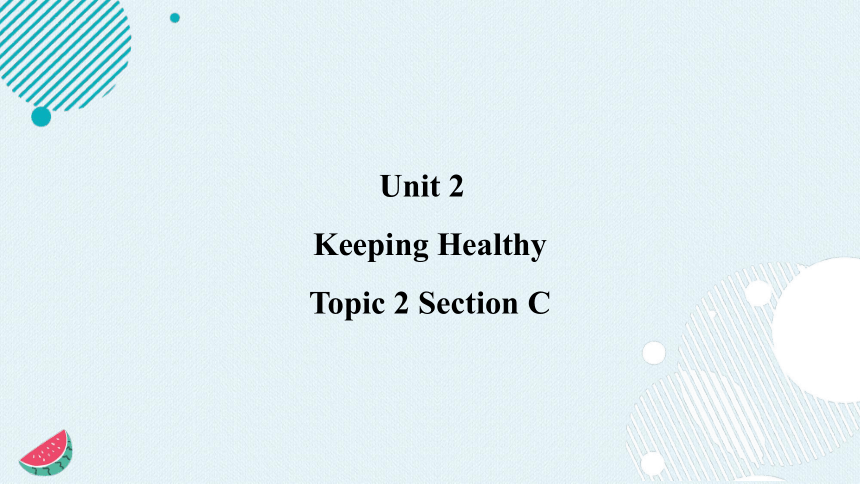
|
|
| 格式 | pptx | ||
| 文件大小 | 23.3MB | ||
| 资源类型 | 教案 | ||
| 版本资源 | 仁爱科普版 | ||
| 科目 | 英语 | ||
| 更新时间 | 2024-08-06 14:33:04 | ||
图片预览

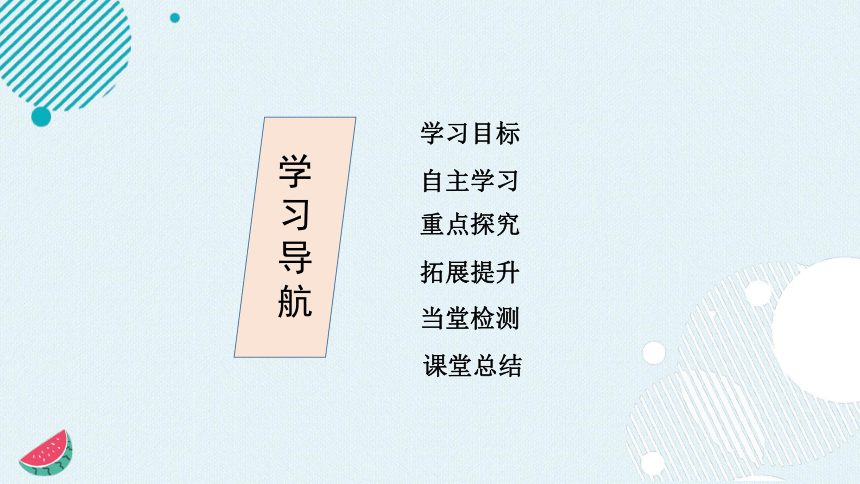
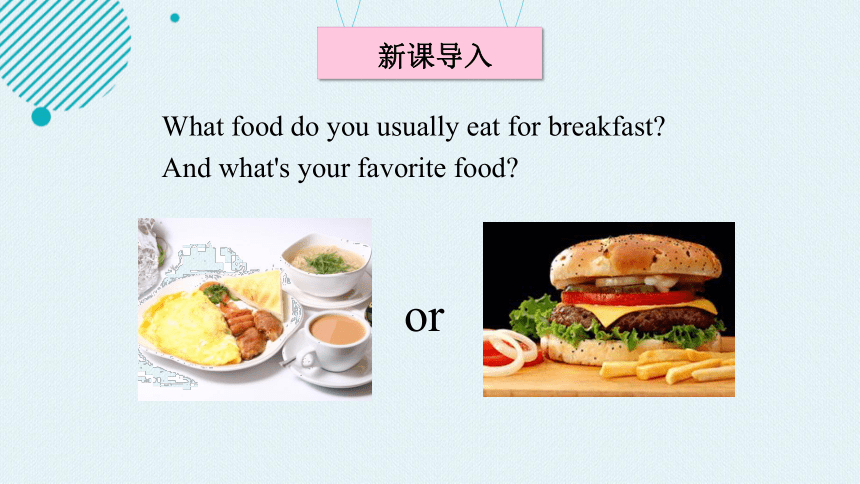
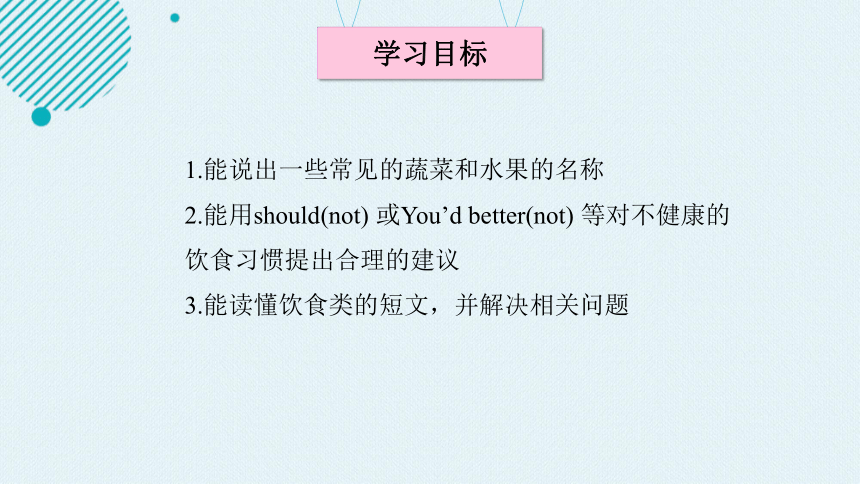
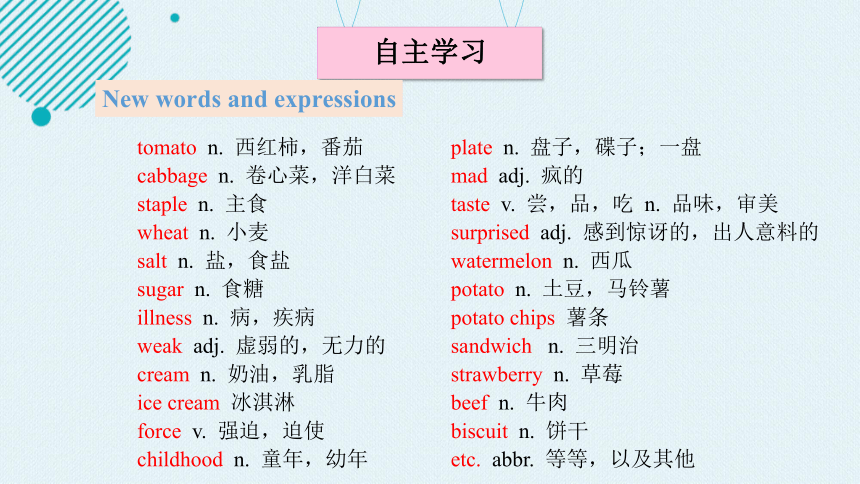
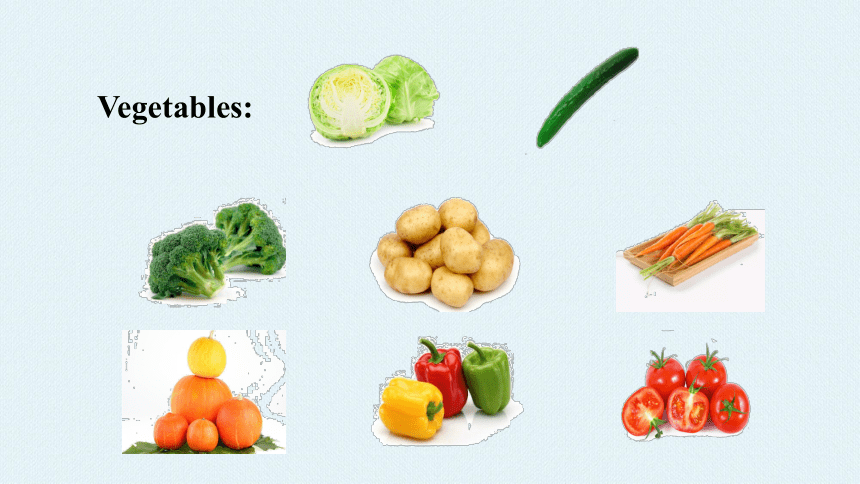

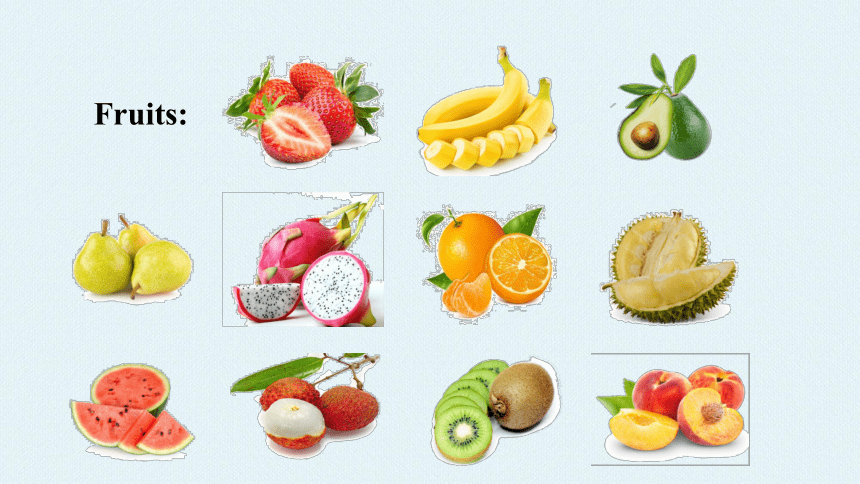
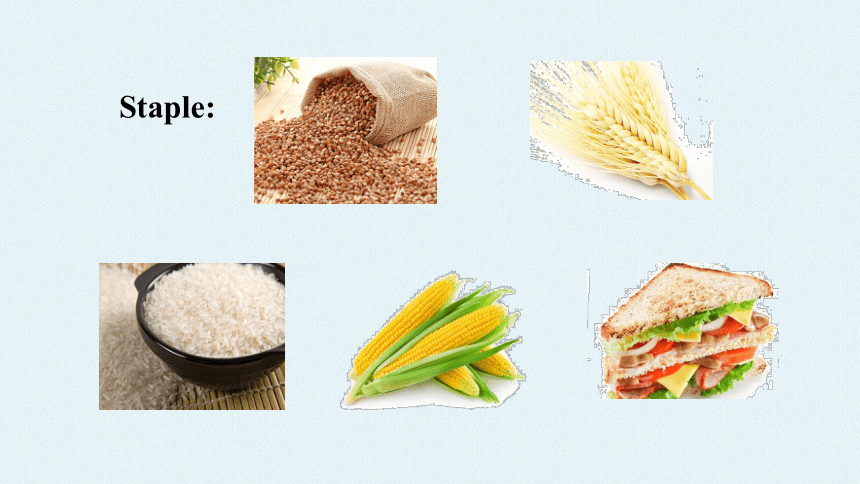
文档简介
(共29张PPT)
Unit 2
Keeping Healthy
Topic 2 Section C
学习目标
重点探究
自主学习
学习导航
当堂检测
课堂总结
拓展提升
新课导入
What food do you usually eat for breakfast
And what's your favorite food
or
学习目标
1.能说出一些常见的蔬菜和水果的名称
2.能用should(not) 或You’d better(not) 等对不健康的饮食习惯提出合理的建议
3.能读懂饮食类的短文,并解决相关问题
自主学习
New words and expressions
tomato n. 西红柿,番茄
cabbage n. 卷心菜,洋白菜
staple n. 主食
wheat n. 小麦
salt n. 盐,食盐
sugar n. 食糖
illness n. 病,疾病
weak adj. 虚弱的,无力的
cream n. 奶油,乳脂
ice cream 冰淇淋
force v. 强迫,迫使
childhood n. 童年,幼年
plate n. 盘子,碟子;一盘
mad adj. 疯的
taste v. 尝,品,吃 n. 品味,审美
surprised adj. 感到惊讶的,出人意料的
watermelon n. 西瓜
potato n. 土豆,马铃薯
potato chips 薯条
sandwich n. 三明治
strawberry n. 草莓
beef n. 牛肉
biscuit n. 饼干
etc. abbr. 等等,以及其他
Vegetables:
Meat:
Fruits:
Staple:
重点探究
1a Read and understand.
Work in pairs and complete the following tasks before reading the passage.
Vegetables: tomato, cabbage, _________________
Meat: chicken, fish,___________________________
Fruits: apple, banana, _________________________
Staple: rice, wheat, ____________________________
1. Write down the food you know.
2.Write down the food you usually eat.
I usually have _________________ for my breakfast.
I usually have _________________ for my lunch.
I usually have _________________ for my supper.
What Mothers Said to Eat
Mothers always tell their children what they should eat.
When Kangkang was a child, his mother often told him, “ Be careful not to eat too much salt or sugar.” She said it might cause illness.
Maria’s mother always took care of Maria very well. For example, Maria’s teeth were very weak,so her mother said that she mustn’t eat too much candy or ice cream.
Milk is a healthy drink. Jane didn’t like it, but her mother always forced her to drink it. Every morning before she left school, she had to drink a glass of milk because her mother was always watching her.
During Michael’s childhood, he had to eat many vegetables and fruit to keep healthy. Once,cabbage wad
on his plate. As so as Michael saw It, he got
mad. But his mother made him taste it. He
was so surprised to find that it was delicious!
1b Read 1a and match the following sentences
with the pictures.
A. Drink milk.
B. Don’t eat too much salt or sugar.
C. Eat vegetables and fruit.
D. Don’t eat too much candy or ice cream.
( ) ( ) ( ) ( )
A
D
B
C
1c Read 1a again and circle True or False.
1.Kangkang liked to eat much sugar when he was a
child. True False
2.Maria’s teeth were not strong because she liked
eating ice cream. True False
3.Jane didn’t like drinking milk. True False
4.By chance Michael found that cabbage was good.
True False
5.Often our mothers’ advice is good for our health.
True False
2 Match the words with the pictures. Look at the
foods that Danny eats and discuss if they are healthy.
If not, give your advice.
potato chips strawberry watermelon sandwich beef ice-cream apple biscuit cabbage cholocate chicken tomato candy rice fish
candy
chocolate
sandwich
chicken
beef
strawberry
rice
ice-cream
watermelon
fish
tomato
cabbage
potato chips
apple
biscuit
Danny's meals
Breakfast: sandwich,potato chips
Lunch: rice with a lot of meat,
such as chicken,beef,etc.
Dinner: fish,strawberries,ice cream
At night: candy,cholocate,biscuit
My advice:_________________
Discuss whether Danny’s eating habits are healthy.
1. He likes eating sandwiches and potato chips for
breakfast.
2. At noon he usually has rice with a lot of meat.
3. He doesn’t like eating vegetables at all.
4. He eats fish, strawberries and ice cream for dinner.
5. He enjoys eating candy ,biscuit and chocolate.
1. Eating vegetables is good for your health.
2. Eating more fruit and less meat.
3. Don’t eat too much ice cream for dinner.
4. Don’t eat too much candy or chocolate.
5. ---
My advice
Language points
1. Mothers always tell their children what they should eat. 妈妈们总是告诉他们的孩子他们应该吃什 么。(1)tell sb to do sth 告诉某人去做某事 tell sb sth 告诉某人某事
(2) what they should eat 为宾语从句 what 在宾语从句中做宾语
拓展提升
2. Be careful not to eat too much salt or sugar.
当心,不要吃太多的盐或糖。 or连词,意为“或,或者,还是”,用于表示连接选择、替换的词、短语或从句。如: Are you coming or not 你来还是不来? (1) 意为“也不”,用于否定句,提出两种或多种事物的连接词。如:He can’t read or write. 他不会写,也不会读。
and意为“和,又,还”,表示并列关系,用于肯定句。如:We have black hair and black eyes.我们有黑头发还有黑眼睛。(2)意为“否则,不然”用于警告或忠告。如: Hurry up, or you will be late for school. 赶快,不然你上学就要迟到了。
3. She said it might cause illness. 她说它可能引起疾病。illness 名词,意为“疾病”。ill+ness组成illness. 例如:kindness, happiness.【辨析】disease 名词,意为“病,疾病”。常指比较严重,通常持续时间久的疾病,常影响特定的身体部位。illness 常指身体或精神上得疾病。He missed a lot of lessons because of his illness. 他因生病耽误了很多的功课。Headache is not a disease itself, bu it may show that something is wrong with your health. 头痛本身不是病,但它可能会显示出你的健康有问题了。
4. Her mother always forced her to drink it. 他的妈妈总是强迫他喝牛奶。 force sb. to do sth. 强迫某人做某事
Eg: 这老板常常强迫工人工作12小时。 This boss often forces the workers to work for 12 hours.
5. As soon as Michael saw it, he got mad. Michael
一看见白菜在他的盘子里,他就很生气。
(1)as soon as 一…… 就…… (引导时间状语从句) Eg: 我一到北京就打电话给你。 I will call you as soon as I get to Beijing.(2)mad adj 疯狂的,发疯;get mad 变得生气
6. He was surprised to find that it was delicious. be surprised to do sth. 对做某事很惊讶
Eg: 她很惊讶地发现她的新自行车不见了。 She was surprised to find that her new bike was lost.(1) surprise 动词,意为“使惊讶,使诧异”。如:The news surprised me. 这个消息使我感到惊讶。(2)surprise 名词,意为“惊奇”“惊讶”. to one’s surprise “使某人惊讶的是...”
如: To my surprise, he is still alive.
使我惊讶的是,他还活着。 What a nice surprise! 真是让人惊喜!
当堂检测
1.To my ________, he is still alive.2.This boss often _______ the workers to work for 12 hours..3.That girl is an orphan, so she has a unhappy _________ .4.He missed a lot of lessons because of his ______.5.I will call you ____ _____ _____ I get to Beijing.
surprise
forces
childhood
illness
as soon as
二、补全对话A: Hi, Mike! Do you have healthy habits B: 1.________________. They’re good for my health.A: 2._________________________ B: I usually get up at 6:30 in the morning. A: 3.______________________ B: I go to school on foot. I think walking is a good way to keep fit.A: 4.____________________________________ B: I usually have a cup of milk and some bread for breakfast.A: Can you give me some advice on how to keep healthy B: 5._____________________. I think you should eat well and take some exercise every day.A: All right. Thank you.B: You’re welcome.
Yes, I do
When do you usually get up
How do you go to school
What do you usually have for breakfast
Sure/ Of course/ Certainly
良好生活习惯的养成:
孩童时期良好生活习惯的养成与母亲有着密切的关系。
We ___________what mother said to eat. Mothers often forced us ______ or do something we even didn’t like.
重点单词和短语:
taste, sandwich, strawberry, potato, sugar, illness, salt, force, biscuit, watermelon, mad, weak, by chance
健康饮食习惯的养成:
We should eat ______
fruit and vegetables to keep ________.
We’d better not eat __________sugar or salt.
should eat
to eat
more
healthy
too much
Unit 2 Topic2
Section C
课堂总结
Unit 2
Keeping Healthy
Topic 2 Section C
学习目标
重点探究
自主学习
学习导航
当堂检测
课堂总结
拓展提升
新课导入
What food do you usually eat for breakfast
And what's your favorite food
or
学习目标
1.能说出一些常见的蔬菜和水果的名称
2.能用should(not) 或You’d better(not) 等对不健康的饮食习惯提出合理的建议
3.能读懂饮食类的短文,并解决相关问题
自主学习
New words and expressions
tomato n. 西红柿,番茄
cabbage n. 卷心菜,洋白菜
staple n. 主食
wheat n. 小麦
salt n. 盐,食盐
sugar n. 食糖
illness n. 病,疾病
weak adj. 虚弱的,无力的
cream n. 奶油,乳脂
ice cream 冰淇淋
force v. 强迫,迫使
childhood n. 童年,幼年
plate n. 盘子,碟子;一盘
mad adj. 疯的
taste v. 尝,品,吃 n. 品味,审美
surprised adj. 感到惊讶的,出人意料的
watermelon n. 西瓜
potato n. 土豆,马铃薯
potato chips 薯条
sandwich n. 三明治
strawberry n. 草莓
beef n. 牛肉
biscuit n. 饼干
etc. abbr. 等等,以及其他
Vegetables:
Meat:
Fruits:
Staple:
重点探究
1a Read and understand.
Work in pairs and complete the following tasks before reading the passage.
Vegetables: tomato, cabbage, _________________
Meat: chicken, fish,___________________________
Fruits: apple, banana, _________________________
Staple: rice, wheat, ____________________________
1. Write down the food you know.
2.Write down the food you usually eat.
I usually have _________________ for my breakfast.
I usually have _________________ for my lunch.
I usually have _________________ for my supper.
What Mothers Said to Eat
Mothers always tell their children what they should eat.
When Kangkang was a child, his mother often told him, “ Be careful not to eat too much salt or sugar.” She said it might cause illness.
Maria’s mother always took care of Maria very well. For example, Maria’s teeth were very weak,so her mother said that she mustn’t eat too much candy or ice cream.
Milk is a healthy drink. Jane didn’t like it, but her mother always forced her to drink it. Every morning before she left school, she had to drink a glass of milk because her mother was always watching her.
During Michael’s childhood, he had to eat many vegetables and fruit to keep healthy. Once,cabbage wad
on his plate. As so as Michael saw It, he got
mad. But his mother made him taste it. He
was so surprised to find that it was delicious!
1b Read 1a and match the following sentences
with the pictures.
A. Drink milk.
B. Don’t eat too much salt or sugar.
C. Eat vegetables and fruit.
D. Don’t eat too much candy or ice cream.
( ) ( ) ( ) ( )
A
D
B
C
1c Read 1a again and circle True or False.
1.Kangkang liked to eat much sugar when he was a
child. True False
2.Maria’s teeth were not strong because she liked
eating ice cream. True False
3.Jane didn’t like drinking milk. True False
4.By chance Michael found that cabbage was good.
True False
5.Often our mothers’ advice is good for our health.
True False
2 Match the words with the pictures. Look at the
foods that Danny eats and discuss if they are healthy.
If not, give your advice.
potato chips strawberry watermelon sandwich beef ice-cream apple biscuit cabbage cholocate chicken tomato candy rice fish
candy
chocolate
sandwich
chicken
beef
strawberry
rice
ice-cream
watermelon
fish
tomato
cabbage
potato chips
apple
biscuit
Danny's meals
Breakfast: sandwich,potato chips
Lunch: rice with a lot of meat,
such as chicken,beef,etc.
Dinner: fish,strawberries,ice cream
At night: candy,cholocate,biscuit
My advice:_________________
Discuss whether Danny’s eating habits are healthy.
1. He likes eating sandwiches and potato chips for
breakfast.
2. At noon he usually has rice with a lot of meat.
3. He doesn’t like eating vegetables at all.
4. He eats fish, strawberries and ice cream for dinner.
5. He enjoys eating candy ,biscuit and chocolate.
1. Eating vegetables is good for your health.
2. Eating more fruit and less meat.
3. Don’t eat too much ice cream for dinner.
4. Don’t eat too much candy or chocolate.
5. ---
My advice
Language points
1. Mothers always tell their children what they should eat. 妈妈们总是告诉他们的孩子他们应该吃什 么。(1)tell sb to do sth 告诉某人去做某事 tell sb sth 告诉某人某事
(2) what they should eat 为宾语从句 what 在宾语从句中做宾语
拓展提升
2. Be careful not to eat too much salt or sugar.
当心,不要吃太多的盐或糖。 or连词,意为“或,或者,还是”,用于表示连接选择、替换的词、短语或从句。如: Are you coming or not 你来还是不来? (1) 意为“也不”,用于否定句,提出两种或多种事物的连接词。如:He can’t read or write. 他不会写,也不会读。
and意为“和,又,还”,表示并列关系,用于肯定句。如:We have black hair and black eyes.我们有黑头发还有黑眼睛。(2)意为“否则,不然”用于警告或忠告。如: Hurry up, or you will be late for school. 赶快,不然你上学就要迟到了。
3. She said it might cause illness. 她说它可能引起疾病。illness 名词,意为“疾病”。ill+ness组成illness. 例如:kindness, happiness.【辨析】disease 名词,意为“病,疾病”。常指比较严重,通常持续时间久的疾病,常影响特定的身体部位。illness 常指身体或精神上得疾病。He missed a lot of lessons because of his illness. 他因生病耽误了很多的功课。Headache is not a disease itself, bu it may show that something is wrong with your health. 头痛本身不是病,但它可能会显示出你的健康有问题了。
4. Her mother always forced her to drink it. 他的妈妈总是强迫他喝牛奶。 force sb. to do sth. 强迫某人做某事
Eg: 这老板常常强迫工人工作12小时。 This boss often forces the workers to work for 12 hours.
5. As soon as Michael saw it, he got mad. Michael
一看见白菜在他的盘子里,他就很生气。
(1)as soon as 一…… 就…… (引导时间状语从句) Eg: 我一到北京就打电话给你。 I will call you as soon as I get to Beijing.(2)mad adj 疯狂的,发疯;get mad 变得生气
6. He was surprised to find that it was delicious. be surprised to do sth. 对做某事很惊讶
Eg: 她很惊讶地发现她的新自行车不见了。 She was surprised to find that her new bike was lost.(1) surprise 动词,意为“使惊讶,使诧异”。如:The news surprised me. 这个消息使我感到惊讶。(2)surprise 名词,意为“惊奇”“惊讶”. to one’s surprise “使某人惊讶的是...”
如: To my surprise, he is still alive.
使我惊讶的是,他还活着。 What a nice surprise! 真是让人惊喜!
当堂检测
1.To my ________, he is still alive.2.This boss often _______ the workers to work for 12 hours..3.That girl is an orphan, so she has a unhappy _________ .4.He missed a lot of lessons because of his ______.5.I will call you ____ _____ _____ I get to Beijing.
surprise
forces
childhood
illness
as soon as
二、补全对话A: Hi, Mike! Do you have healthy habits B: 1.________________. They’re good for my health.A: 2._________________________ B: I usually get up at 6:30 in the morning. A: 3.______________________ B: I go to school on foot. I think walking is a good way to keep fit.A: 4.____________________________________ B: I usually have a cup of milk and some bread for breakfast.A: Can you give me some advice on how to keep healthy B: 5._____________________. I think you should eat well and take some exercise every day.A: All right. Thank you.B: You’re welcome.
Yes, I do
When do you usually get up
How do you go to school
What do you usually have for breakfast
Sure/ Of course/ Certainly
良好生活习惯的养成:
孩童时期良好生活习惯的养成与母亲有着密切的关系。
We ___________what mother said to eat. Mothers often forced us ______ or do something we even didn’t like.
重点单词和短语:
taste, sandwich, strawberry, potato, sugar, illness, salt, force, biscuit, watermelon, mad, weak, by chance
健康饮食习惯的养成:
We should eat ______
fruit and vegetables to keep ________.
We’d better not eat __________sugar or salt.
should eat
to eat
more
healthy
too much
Unit 2 Topic2
Section C
课堂总结
同课章节目录
- Unit 1 Playing Sports
- Topic 1 I'm going to play basketball.
- Topic 2 I'll kick you the ball again.
- Topic 3 The school sports meet is coming.
- Unit 2 Keeping Healthy
- Topic 1 You should brush your teeth twice a day.
- Topic 2 I must ask him to give up smoking.
- Topic 3 Must we exercise to prevent the flu?
- Unit 3 Our Hobbies
- Topic 1 What's your hobby?
- Topic 2 What sweet music!
- Topic 3 What were you doing at this time yesterday
- Unit 4 Our World
- Topic 1 What's the strongest animal on the farm?
- Topic 2 How can we protect ourselves from the eart
- Topic 3 The Internet makes the world smaller.
